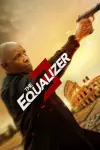
Shakira's latest release, "How Do You Do," is not just a catchy pop song but also a thought-provoking exploration of faith, identity, and social issues. The lyrics touch upon themes that resonate deeply with people from diverse backgrounds and belief systems.
The song begins with a prayer-like refrain, invoking the names of God in Arabic and Hebrew, highlighting the multicultural nature of the message being conveyed. This sets a spiritual tone for the rest of the song, which delves into issues of forgiveness, compassion, and justice.
The lyrics then introduce the question, "What language do you speak if you speak at all? Are you some kind of freak who lives to raise the ones who fall?" This opening statement raises intriguing questions about identity and otherness, inviting listeners to reflect on their own position in society and their relationship with those who may be different from them.
The song goes on to address issues of inequality and oppression, with lines like "And if our fates have all been wrapped around your finger / And if you wrote the script then why the troublemakers?" This questioning tone encourages listeners to examine power dynamics and consider whether they are complicit in perpetuating unjust systems.
The chorus, "How do you do? How does it feel to be so high / And are you happy? Do you ever cry?" is a poignant reflection on wealth and privilege, as well as the emotional toll that power can have. It invites listeners to consider whether they are truly happy and fulfilled or if there is something more to life than material success.
The song also touches upon social justice issues, with lines like "How many people die / And hurt in your name? Hey, does that make you proud / Or does it bring you shame?" This questioning tone invites listeners to consider their role in society and whether they are contributing to harm or working for positive change.
Overall, "How Do You Do" by Shakira is a powerful statement on faith, identity, and social justice issues that resonates with people from diverse backgrounds and belief systems. Its message of forgiveness, compassion, and justice is both universal and personal, inviting listeners to reflect on their own position in society and consider how they can make a difference.
The song's lyrics are both poetic and thought-provoking, encouraging listeners to think critically about the world around them and strive for positive change. Its mix of spirituality, social justice, and personal reflection makes it a rich and complex piece that rewards repeated listening.
As Shakira sings in the closing lines, "Forgive us our trespasses / As we forgive those who have trespassed against us / Sameh Zoonoobee Allah / Give us this day our daily bread / Mechila / Daily bread / Ya Allah (S'lach lanu) / Daily bread / Thine is the Kingdom and the Power and the Glory / Amen!" we are left with a sense of hope and reverence, inspired to work for positive change in our own lives and communities.
The song begins with a prayer-like refrain, invoking the names of God in Arabic and Hebrew, highlighting the multicultural nature of the message being conveyed. This sets a spiritual tone for the rest of the song, which delves into issues of forgiveness, compassion, and justice.
The lyrics then introduce the question, "What language do you speak if you speak at all? Are you some kind of freak who lives to raise the ones who fall?" This opening statement raises intriguing questions about identity and otherness, inviting listeners to reflect on their own position in society and their relationship with those who may be different from them.
The song goes on to address issues of inequality and oppression, with lines like "And if our fates have all been wrapped around your finger / And if you wrote the script then why the troublemakers?" This questioning tone encourages listeners to examine power dynamics and consider whether they are complicit in perpetuating unjust systems.
The chorus, "How do you do? How does it feel to be so high / And are you happy? Do you ever cry?" is a poignant reflection on wealth and privilege, as well as the emotional toll that power can have. It invites listeners to consider whether they are truly happy and fulfilled or if there is something more to life than material success.
The song also touches upon social justice issues, with lines like "How many people die / And hurt in your name? Hey, does that make you proud / Or does it bring you shame?" This questioning tone invites listeners to consider their role in society and whether they are contributing to harm or working for positive change.
Overall, "How Do You Do" by Shakira is a powerful statement on faith, identity, and social justice issues that resonates with people from diverse backgrounds and belief systems. Its message of forgiveness, compassion, and justice is both universal and personal, inviting listeners to reflect on their own position in society and consider how they can make a difference.
The song's lyrics are both poetic and thought-provoking, encouraging listeners to think critically about the world around them and strive for positive change. Its mix of spirituality, social justice, and personal reflection makes it a rich and complex piece that rewards repeated listening.
As Shakira sings in the closing lines, "Forgive us our trespasses / As we forgive those who have trespassed against us / Sameh Zoonoobee Allah / Give us this day our daily bread / Mechila / Daily bread / Ya Allah (S'lach lanu) / Daily bread / Thine is the Kingdom and the Power and the Glory / Amen!" we are left with a sense of hope and reverence, inspired to work for positive change in our own lives and communities.


